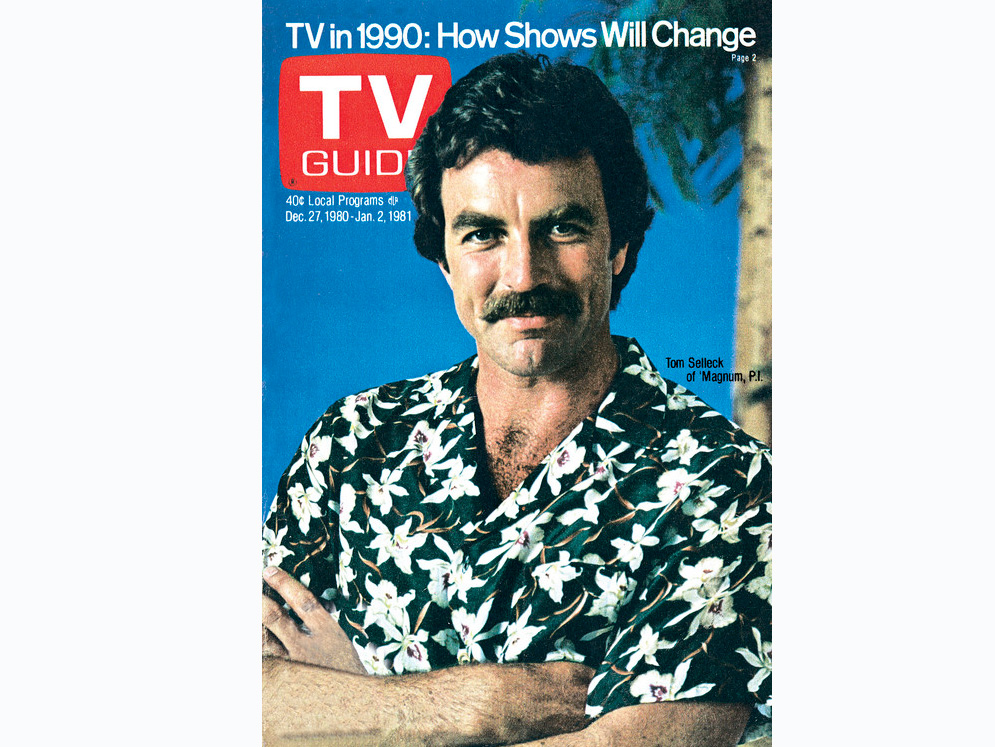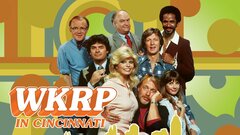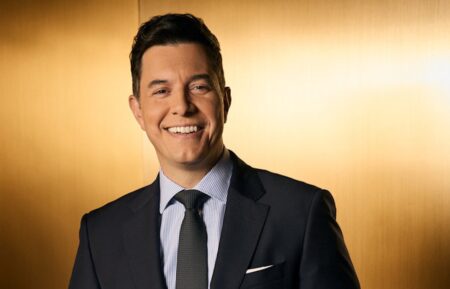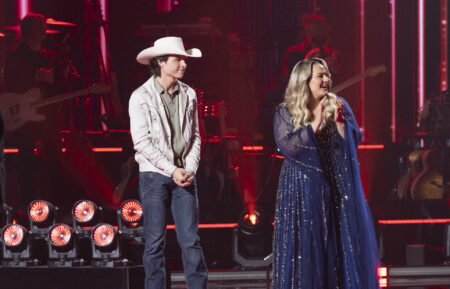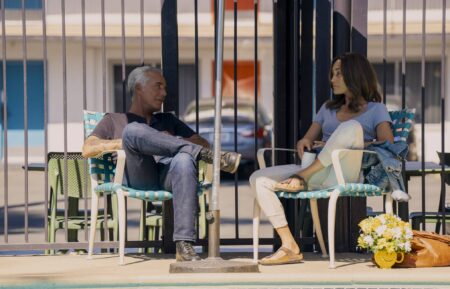10 Fun Facts About ‘WKRP in Cincinnati,’ Which Ended 40 Years Ago
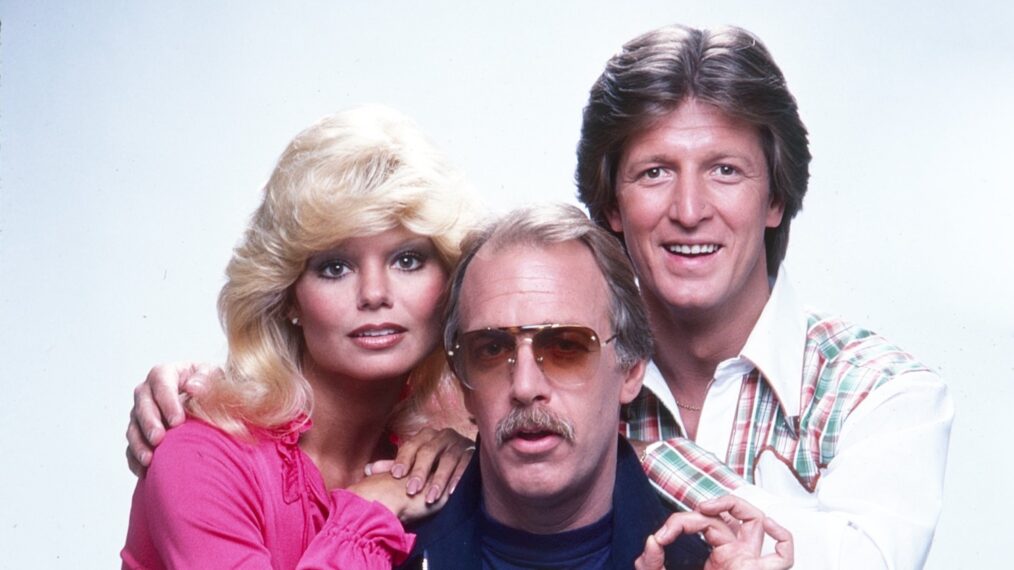
Forty years ago, the CBS sitcom WKRP in Cincinnati left the airwaves after four seasons and 90 episodes, with program director Andy Travis (Gary Sandy) getting a cake in the face as a reward for turning the titular radio station around. (It was the buffoonish sales manager Herb Tarlek, played by Frank Bonner, whose clumsiness turned the party in Andy’s honor into a messy affair.)
That moment of slapstick TV comedy on April 21, 1982, wasn’t meant to be the last fans saw of the WKRP crew, but CBS canceled the show two weeks later as it made room on its schedule for shows like Square Pegs and Newhart.
Happily, the radio station made a comeback nearly a decade later in The New WKRP in Cincinnati, but for many fans, there’s no substitute for the original. Now that we’ve reached the 40th anniversary of that series finale, let’s tune the dial back to WKRP. Check out the trivia below.
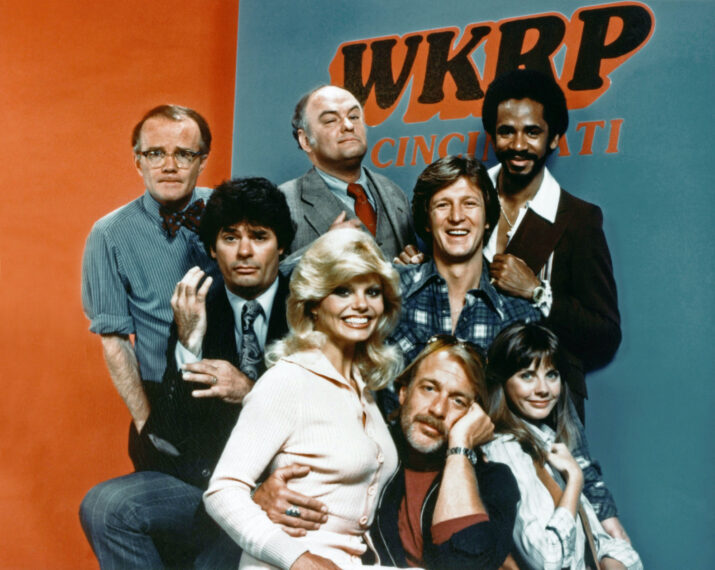
MTM Television/Courtesy: Everett Collection
That WKRP call sign is a reference to, ahem, excrement.
WKRP in Cincinnati creator Hugh Wilson revealed to The Cincinnati Enquirer that WKRP stands for “crap,” and that he chose Cincinnati because it paired well with the call sign.
WKRC in Cincinnati thought WKRP in Cincinnati was great publicity.
CBS lawyers originally vetoed the WKRP call sign because it was too close to Cincinnati’s real-life WKRC radio station, as Wilson told the Television Academy Foundation in 2015. “I called [WKRC], and I said, ‘Can we have your permission [so] that you won’t sue us?’” he recalled. “And they said, ‘Are you kidding? This is great!’ They saw it as a great publicity opportunity for them.… They thought it was wonderful.”
It was a CBS show but showcased an NBC affiliate’s broadcast tower.
Seems like the CBS lawyers had no qualms with the WKRP opening credits zeroing in on a broadcast tower belonging to NBC affiliate WLWT. (Tower buff Scott Fybush pointed out that incongruous fact on his blog in 2003.)
David Cassidy turned down the part of Dr. Johnny Fever.
The Partridge Family star and teen idol was WKRP producers’ first choice for disc jockey Dr. Johnny Fever, according to MeTV, and when he said no to the role, Howard Hesseman took the part. (Hesseman was originally invited to read for Herb but demanded to read for Johnny instead, MeTV adds.)
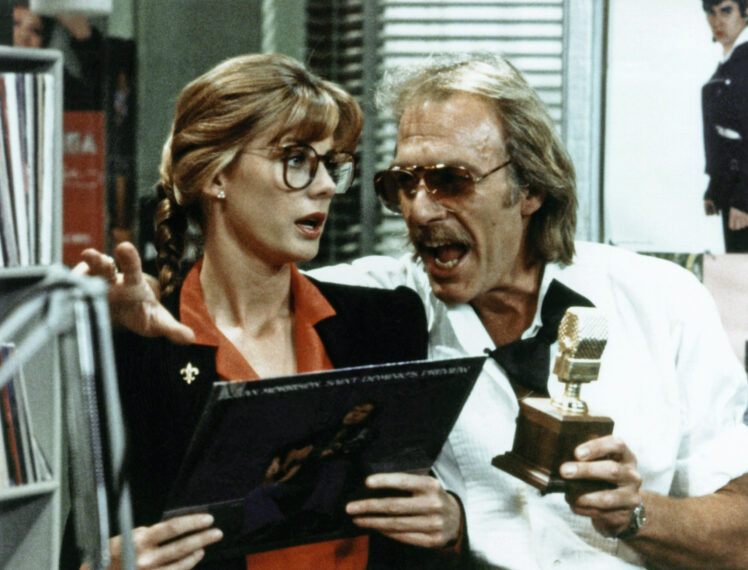
Jan Smithers and Howard Hesseman in ‘WKRP in Cincinnati’ (MTM Television/Courtesy: Everett Collection)
The lyrics of the end credits song are just gibberish.
“I had originally written the closure to be an instrumental, but on the day of recording, I began joking around singing the melody that the saxophone would eventually play,” Jim Ellis, who orchestrated the end credits theme, explained on his personal website, per the Quad-City Times. “Of course, there were no lyrics, and I was just sort of scatting gibberish. Well, Hugh and [WKRP music composer] Tom [Wells] thought that was funny and that it made a joke about the general unintelligibility of rock lyrics.”
WKRP gave the Blondie song “Heart of Glass” a big boost.
Johnny cues up the disco-esque “Heart of Glass” in the Season 1 episode “Commercial Break,” weeks before the RIAA certified the song Gold and the Blondie album Parallel Lines Platinum. The WKRP producers later received a golden Parallel Lines record trophy in recognition of the show helping the album become a hit, according to the Paley Center for Media.
The show won a Humanitas Prize in 1981.
Speaking of awards, Wilson won a Humanitas Prize in 1981 for the WKRP Season 3 episode “Venus and the Man,” in which deejay Venus Fly Trap (Tim Reid) helps keep a Black teen in school. The Humanitas Prize, bestowed by the Human Family Educational and Cultural Institute, rewards film and TV writers “whose work explores the human condition in a nuanced, meaningful way.”
Loni Anderson stayed on the show after getting a big pay bump.
TV historians Tim Brooks and Earle F. Marsh note in The Complete Directory to Prime Time Network and Cable TV Shows that Loni Anderson, who played receptionist Jennifer Marlowe on WKRP, demanded a “huge increase in salary” after she became a sex symbol during the show’s run. The studio met her demand, and so she stayed.
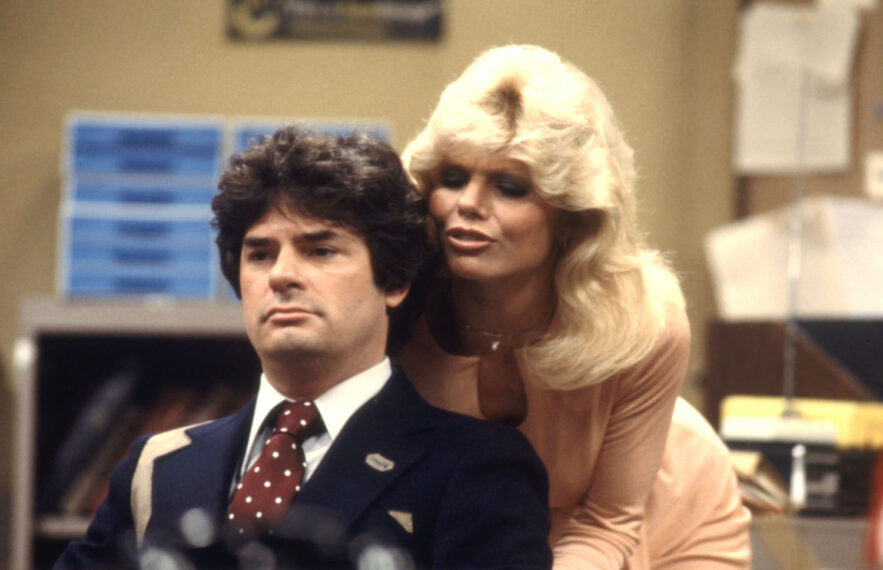
Frank Bonner and Loni Anderson in ‘WKRP in Cincinnati’ (Everett Collection)
Many cast members returned to their roles for 1991’s The New WKRP in Cincinnati.
Wilson was also the creator of The New WKRP in Cincinnati, which debuted in syndication in 1991 and aired two seasons. In that sequel series, Gordon Jump (Arthur Carlson), Richard Sanders (Les Nessman), and Bonner reprised their roles on a full-time basis, Hesseman came back as a recurring star, and Anderson and Reid appeared as guest stars.
A 2014 DVD release restored the “vast majority” of the WKRP soundtrack.
Thanks to a music-rights loophole, the WKRP in Cincinnati producers got to use hit songs at a savings because the show was shot on videotape instead of film, according to the Star Tribune. Once those rights expired, however, the music in question had to be excised from reruns of WKRP episodes.
Then, in 2014, Shout! Factory announced that it had secured the rights to “the vast majority of the music” from the show for its complete series DVD set, including songs from AC/DC, Ray Charles, Bob Dylan, Otis Redding, The Rolling Stones, and The Who. “In WKRP, music is almost a character itself, and an essential aspect of what makes it one of the best-loved shows of all time,” Shout! explained in a blog post.

